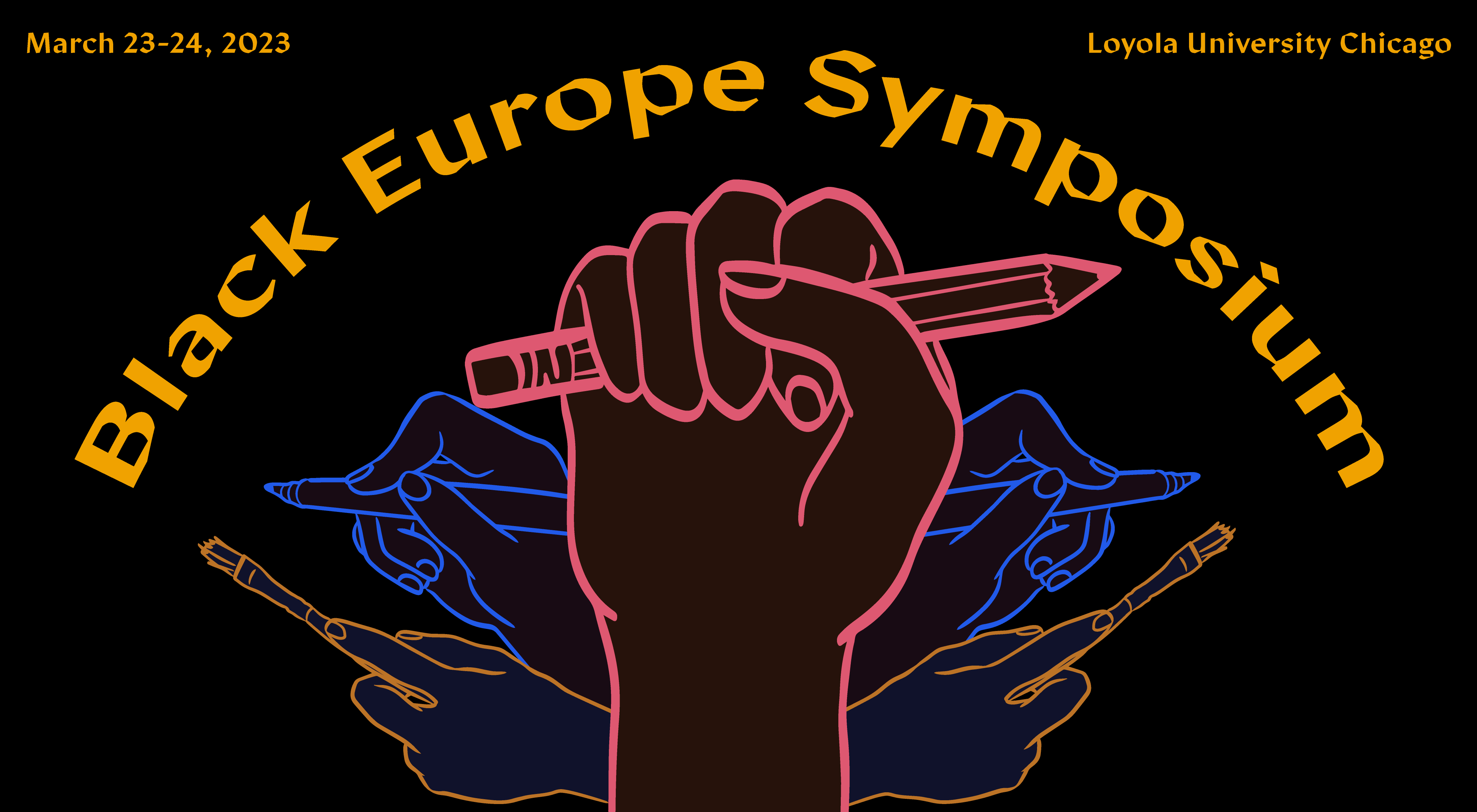Black Europe Symposium
The Black Europe Symposium at Loyola University Chicago brings to visibility for students, faculty, and the Chicago community the diverse presence of writers and artists of African descent who contribute to today’s European cultural life through different media, including music, film, literature, the visual arts, performance, and poetic expressions. It highlights the complex processes that forge a new Europe through cross-cultural encounters and identity formation, while emphasizing the importance of the arts and foreign languages and cultures in a world that is changing through travel and migration.
The invited guests come from different national and cultural backgrounds and their main languages of expression are French and Italian. Yet, their cultural identity is fluid, moving in and out of many languages, social contexts, affiliations, and memories. Alongside the artists, the symposium gathers a group of scholars to foster a sustained reflection on the shifting valences of "African", "European" and "Blackness" in the context of today’s Europe and the United States.
This symposium is part of a 2022-2023 series of initiatives at Loyola University Chicago that celebrate and discuss Blackness in its global instantiations. The conversation with writer Louis-Philippe Dalembert launched Black Europe on October 26th, 2022.
Learn more about the Black Europe and the Mediterranean Wall webinar, the first component of this series, here.
Event Details
The Black Europe Symposium will take place on March 23rd and 24th, 2023, on the Loyola University Chicago campus.
For detailed information, please see the program below or download here.
This event was made possible by the generous support of the Department of Modern Languages and Literatures, the Institute for Racial Justice, the Dean’s Office, the Provost’s Office, the Interdisciplinary Honors Program, and the Global Studies Program at Loyola University Chicago, as well as the Italian Cultural Institute of Chicago. It has also benefited from partnerships with the Alliance française de Chicago and the Consulate General of France in Chicago.
This event is free and open to the public.
Day 1:
Thursday, March 23, 5:30-7:30 p.m., Galvin Auditorium, Sullivan Center, Ground Floor, Lake Shore Campus. (6339 N Sheridan Rd, IL, 60626).
- Welcoming remarks
- Screening of Hamedine Kane’s The Blue House
- Q&A with film director Hamedine Kane
Day 2:
Friday, March 24, 10:00am- 3:30pm: What Is Black Europe?
Wintrust Hall, Schreiber Center, Room 908, 9th Floor, Water Tower Campus 16 E Pearson St, Chicago, IL 60611
10:00 a.m. to 12:30pm: An Introduction to Black Europe
10:00-11:00 am: Panel discussion with Tristan Cabello, Hope Campbell-Gustafson, Cristina Lombardi-Diop and Eliana Văgălău
11:00 a.m. to 12 p.m.: Readings by authors Cristina Ubah Ali Farah and Néhémy Pierre-Dahomey
12:00-12:30 p.m.: Q&A with the authors
12:30-1:30 p.m.: Lunch
1:30-3:30 p.m.: Open Forum with Cristina Ubah Ali Farah, Néhémy Pierre-Dahomey, Karima 2G, and Hamedine Kane, moderated by Cristina Lombardi-Diop and Eliana Văgălău
6:00-8:00 p.m.: Closing Night at Heaven Gallery, 1550 N Milwaukee Ave #2, Chicago, IL 60622. Off-campus location.
- DJ set and Performance by Karima 2G
- Apéritif/Aperitivo
Meet our Speakers
Ubah Cristina Ali Farah
Ubah Cristina Ali Farah is a Somali Italian poet, novelist, playwright, librettist and oral performer. She is the author of three novels, Madre piccola (2007; Little Mother, IUP 2011, republished in 2022 by 66thand2nd) Il comandante del fiume (2014; The Commander of the River, forthcoming IUP 2021, republished in 2022 by 66thand2nd), Le stazioni della luna (The Stations of the Moon, June 2021), the dell’ekphrasis La danza dell’orice (Juxta Press 2020) and a bilingual (French and Italian) collection of short stories Un sambouk traverse la mer (MEET 2020). With poetic poignancy, Ali Farah’s fictional and poetic work offers voice to the Somali diaspora, spanning crucial events in the country’s history, from the rise of independentist aspirations under Italy’s protectorate, through the Somali civil war, to the lives of young Somali in Rome. Her creative and scholarly commitment to Somali culture brought her to write a non-fiction book on the Somali folk theater and to collect oral stories of Somali women. In July 2018 her rewriting of Antigone was directed by Giuseppe Massa in Palermo and she developed a libretto on the basis of stories found in the Italian city of Matera for Silent City, an opera directed by James Bonas with music composed by Nigel Osborne in November 2019. She holds a Ph.D. in African Studies (Università L’Orientale Napoli) and is the recipient of the Lingua Madre and Vittorini Prizes.
Ubah Cristina Ali Farah è una scrittrice e poetessa somala e italiana. È autrice di tre romanzi, Madre piccola (Frassinelli 2007), Il comandante del fiume (66thand2nd 2014), Le stazioni della luna (66thand2nd 2021) e dell’ekphrasis La danza dell’orice (Juxta Press 2020) ispirata a un’opera dell’artista keniana Wangechi Mutu. Un sambouk traverse la mer, una sua antologia bilingue (italiano francese) di racconti è uscita per il MEET (2019). Ha svolto un dottorato di ricerca di Africanistica all’Università l’Orientale di Napoli sul teatro popolare somalo. È stata vincitrice del Premio Lingua Madre (2006) e Vittorini (2008). Attualmente sta lavorando all’opera La fille de l’homme qui prévoyait pour le futur, una riscrittura operistica di una favola tradizionale ruandese, creata con Dorcy Rugamba, James Bonas e Grégoire Point. Nel 2018 ha lavorato alla riscrittura dell’Antigone andata diretta a Palermo da Giuseppe Massa e al libretto dell’opera comunitaria Silent City per Matera 2019, diretta da James Bonas con musiche composte da Nigel Osborne.
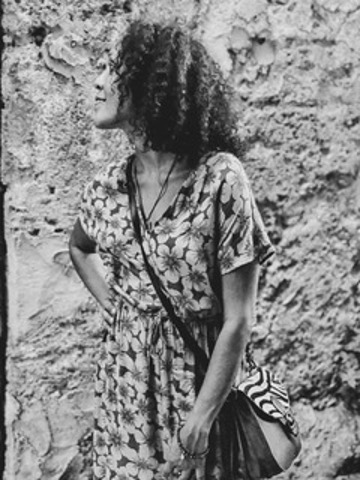
Néhémy Pierre-Dahomey
Néhémy Pierre-Dahomey is a writer, poet, and philosopher. Now living in Paris, he was born in Port-au-Prince in October 1986. He studied philosophy at the École Normale Supérieure, in parallel with his activities as an actor. He won the first prize for poetry awarded by the Pléiade Group at the State University of Haiti with Mots épars, of which an eponymous collection was published with the texts of the two other winners. In 2010, still in Port-au-Prince and on his own account, he published Emmuré, his first collection of poetry. Rapatriés, his first novel, was published in 2017 by the Éditions du Seuil in Paris and it recounts the story of Belliqueuse Louissaint and her two daughters, Bélial and Luciole, over a period of thirty years, from the days of the boat people to the earthquake of 2010. The recipient of multiple awards (Société des Gens de Lettres, Carbet des lycéens de la Caraïbe, Ciné del Duca Prize of the l'Académie Française), the novel was met with both critical and public success.
Published in March 2021, his second novel, Combats (Éditions du Seuil), digs further into Haiti’s history, to shed an inquisitive, yet tender, light, and highly sardonic look on the effects of the debt imposed by France on the newly independent republic. Through the story of the conflict between two half-brothers, Ludovic and Balthazar Possible we are led into the Haitian countryside, where ancestral forms of resistance emerge in the most unexpected places.
Pierre-Dahomey is currently working on his first essay as well as on his third novel, both coming out soon.
Néhémy Pierre-Dahomey est écrivain, poète et philosophe. Vivant actuellement à Paris, il est né à Port-au-Prince en octobre 1986. Il a étudié la philosophie à l'École Normale Supérieure, parallèlement à ses activités de comédien. Il a remporté le premier prix de poésie décerné par le groupe Pléiade de l'Université d'État d'Haïti avec Mots épars, dont un recueil éponyme a été publié avec les textes des deux autres lauréats. En 2010, toujours à Port-au-Prince et à compte d'auteur, il publie Emmuré, son premier recueil de poésie. Rapatriés, son premier roman, est paru en 2017 aux éditions du Seuil à Paris. Il y raconte l'histoire de Belliqueuse Louissaint et de ses deux filles, Bélial et Luciole, sur une période de trente ans, de l'époque des boat people au tremblement de terre de 2010. Récompensé par de multiples prix (Société des Gens de Lettres, Carbet des lycéens de la Caraïbe, Prix Ciné del Duca de l'Académie française), le roman a rencontré un succès critique et public.
Publié en mars 2021, son deuxième roman, Combats (Éditions du Seuil), creuse davantage l'histoire d'Haïti, pour porter un regard interrogateur, mais tendre, léger et très sardonique sur les effets de la dette imposée par la France à cette République nouvellement indépendante. À travers l'histoire du conflit entre deux demi-frères, Ludovic et Balthazar Possible, le narrateur nous entraîne dans la campagne haïtienne, où des formes ancestrales de résistance émergent dans les endroits les plus inattendus.
Pierre-Dahomey travaille actuellement à son premier essai ainsi qu'à son troisième roman, à paraître bientôt.
.jpeg)
Karima 2G
Anna Maria Gehnyei (aka Karima 2G) is a Liberian Italian singer, rapper, dancer, writer, activist, and beats-maker. In her music, she combines electronic elements, urban bass music, and grime with Afro influences, incorporating English and pidgin English, her mother tongue, in her singing and rapping. She holds degrees in Communications, Political Science, and Art & Design. Her solo debut album (2G) dates to 2014 and uses music and oral performance as medium to bring out the values of her culture of origin in an Italian perspective, focusing on anti-Blackness and the integration of second-generation Europeans. The videos released with her first two singles, “Orangutan” and “Bunga Bunga,” exposed the racist climate of Italy’s political life with ironic, Afrofuturist aesthetics. Her 2018 music video for her EP “Malala” re-interprets the 1966 film by Ousmane Sembène La Noire De… by transporting the story of a Black woman worker in contemporary Rome. More recently, her songs and videos address larger themes with an international scope, such as modern-day slavery. She collaborates with History Channel, Al Jazeera, and Amnesty International and is currently writing a book focused on her biography. Currently, Karima 2g created and performed in If There Is no Sun, a performance dance promoted by the Italian Ministry of Culture that premiered at the Teatro Indie in Rome in the summer of 2022. She just published a novel by the title Il corpo nero (The Black Body).
Anna Maria Gehnyei, nota con il nome di Karima 2g, è cantante, danzatrice, e producer italiana di origine liberiana. La sua carriera artistica inizia come danzatrice ma presto diventa vocalist professionista dalle consolle delle maggiori discoteche italiane. Nel 2014 esordisce come solista e i video dei primi due singoli, Orangutan e Bunga Bunga, provocano reazioni in pubblico e critica dalle riviste musicali passando per il Corriere della Sera, Il Fatto Quotidiano e Vogue. Grazie al suo percorso artistico, la John Cabot University le riconosce una borsa di studio internazionale, e nel 2020 si plurilaurea in Communications e Political Science. Nel 2022 debutta con il suo primo spettacolo teatrale If There Is No Sun, di cui è anche autrice. Il corpo nero è il suo primo romanzo.
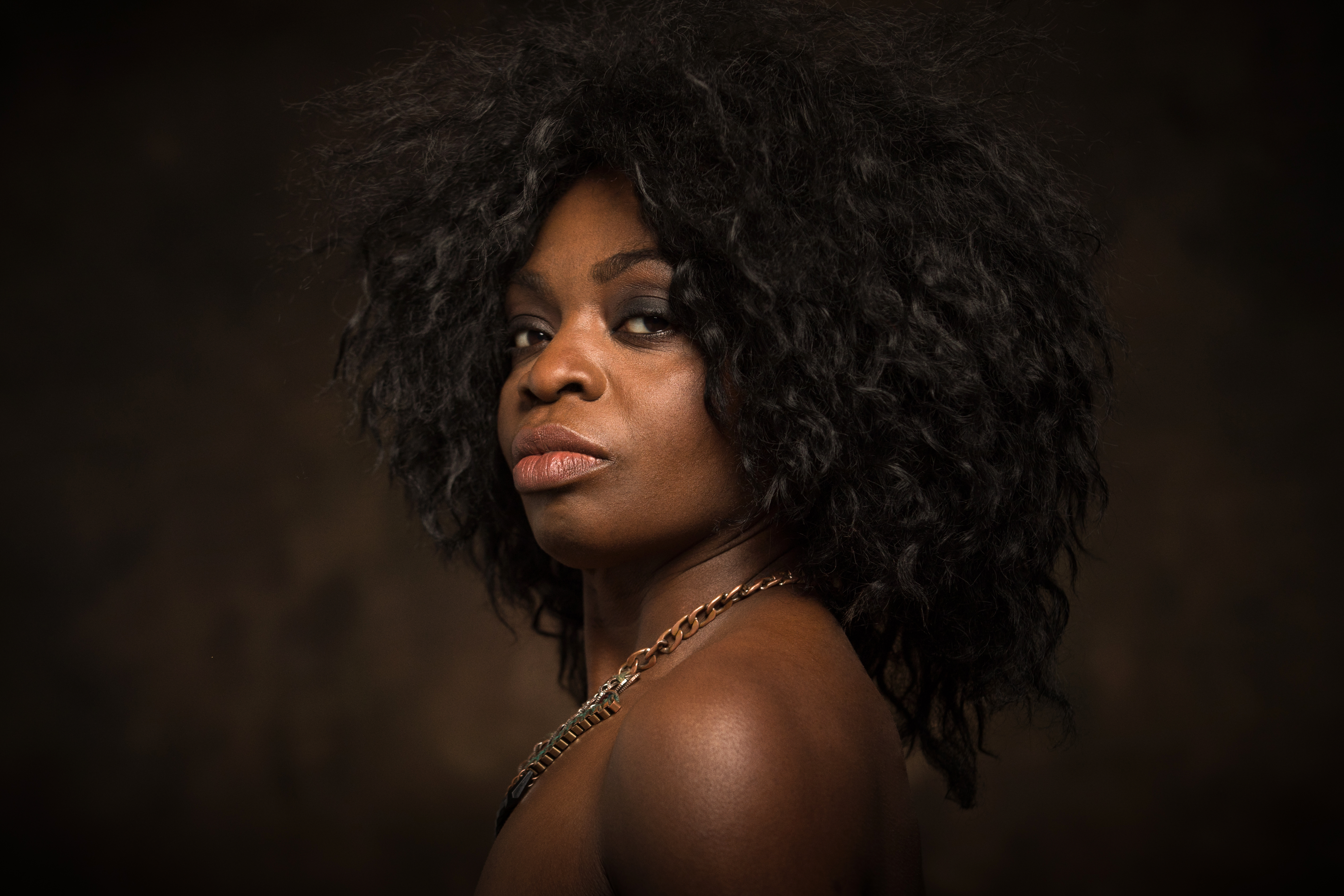
Hamedine Kane
Hamedine Kane is a Senegalese and Mauritanian artist and film director who lives and works between Brussels and Dakar. Through his practice, Kane frequents borders, not as signs and factors of impossibility, but as places of passage and transformation, as a central element in the conception of itinerant identity. After ten years of exile in Europe, his practice now focuses on the themes of memory and heritage. This aspect of his work is taking shape with the research project École des Mutants / The School of Mutants in collaboration with Stéphane Verlet-Bottero. In Kane’s works, these themes intermingle with the past and the future, transgressing and irrigating the limits of space and time. Kane participated in the Dak’Art Biennale, the Taipei Biennial, the Casablanca Biennale, Documenta 14, and his work was displayed in various exhibitions as part of the Africa2020 season in France, such as The Colonie and the FIAC. His film The Blue House, which had its world premiere at IDFA in Amsterdam in November 2020, received a special mention from the jury. His current work-in-progress, Trois Américains à Paris, takes as its starting point a part of the life and work of three great African American writers who went into exile in Paris in the mid-1940s: Richard Wright, Chester Himes, and James Baldwin.
Hamedine Kane est un artiste et réalisateur sénégalais et mauritanien qui vit et travaille entre Bruxelles et Dakar. A travers sa pratique, Kane fréquente les frontières, non pas comme des signes et des facteurs d'impossibilité, mais comme des lieux de passage et de transformation, comme un élément central dans la conception d'une identité itinérante. Après dix ans d'exil en Europe, sa pratique se concentre désormais sur les thèmes de la mémoire et de l'héritage. Cet aspect de son travail prend forme avec le projet de recherche L'École des Mutants / The School of Mutants en collaboration avec Stéphane Verlet-Bottero. Dans les œuvres de Kane, ces thèmes se mêlent au passé et au futur, transgressant et irriguant les limites de l'espace et du temps. Kane a participé aux Biennales de Dak'Art, de Taipei, de Casablanca, à Documenta 14, et son travail a été présenté dans diverses expositions dans le cadre de la saison Africa2020 en France, telles que la Colonie et la FIAC. Son film The Blue House, qui a été présenté en première mondiale à l'IDFA d'Amsterdam en novembre 2020, a été récompensé par une mention spéciale du jury. Son projet en cours, Trois Américains à Paris, prend comme point de départ une partie de la vie et de l'œuvre de trois grands écrivains afro-américains qui se sont exilés à Paris au milieu des années 1940 : Richard Wright, Chester Himes et James Baldwin.
.jpeg)
Tristan Cabello
Tristan Cabello is Associate Director of the Master of Liberal Arts at the Johns Hopkins University. He is an historian of minorities, and specializes on transatlantic conversations about race, sexuality and secularism. He regularly appears in the French media (Le Monde, Libération, BFMTV, France 24) to discuss American cultures and politics. You can follow him on twitter at @tristancabello.
Tristan Cabello est co-directeur du Master of Liberal Arts à l'Université Johns Hopkins. Il est historien des minorités et se spécialise dans les débats transatlantiques sur la race, la sexualité et la laïcité. Il intervient régulièrement dans les médias français (Le Monde, Libération, BFMTV, France 24) pour traiter des cultures et de la politique américaines. Il peut être suivi sur Twitter à l'adresse @tristancabello.
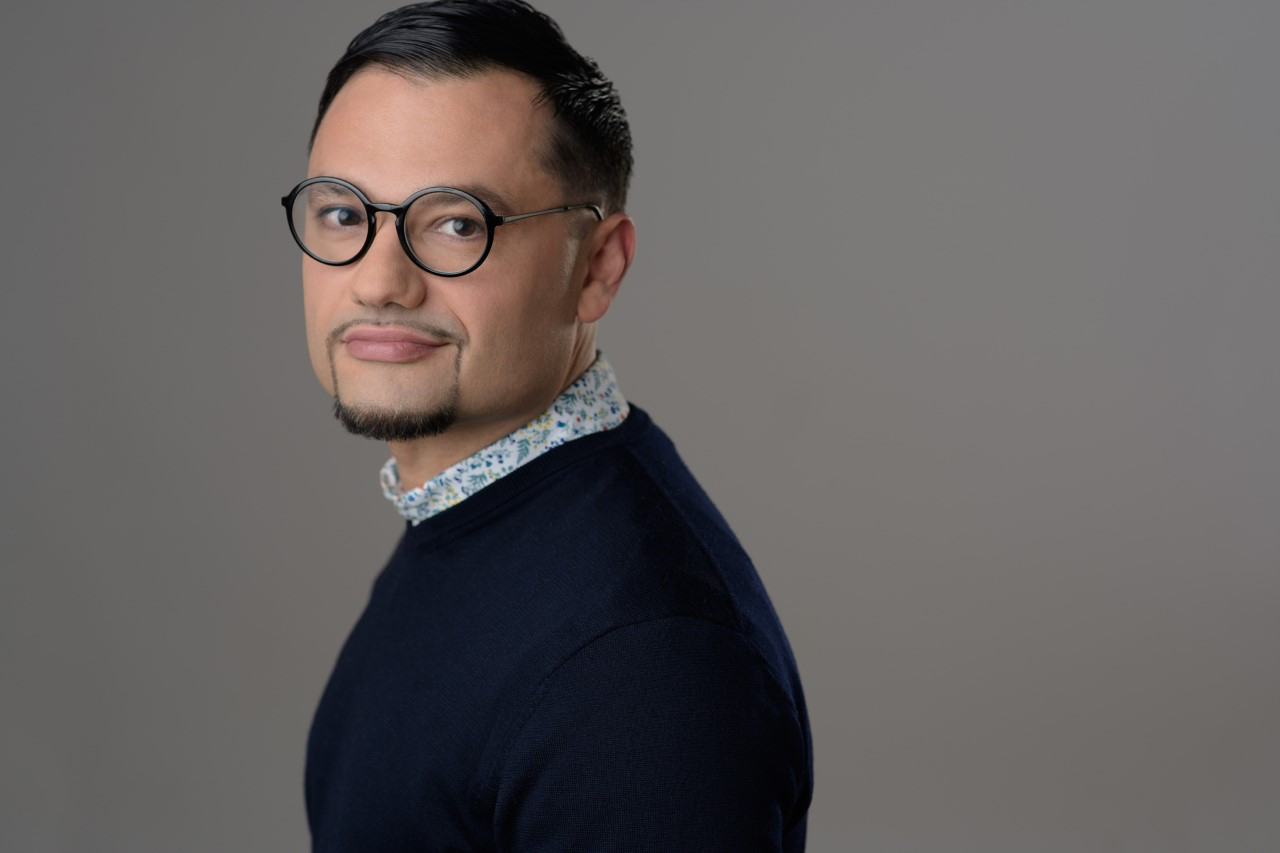
Hope Campbell Gustafson
Hope Campbell Gustafson holds an MFA in Literary Translation from the University of Iowa and a B.A. from Wesleyan University. Her translation work has been published in various journals, including Banthology: Stories from Unwanted Nations, and Islands—New Islands: A Vagabond Guide to Rome by Marco Lodoli. Her translation of Ubah Cristina Ali Farah's novel Commander of the River is forthcoming in May 2023 from Indiana University Press. Originally from Minneapolis, and now living in Brooklyn, Campbell Gustafson is Senior Program Associate for the Civitella Ranieri Foundation.
Hope Campbell Gustafson ha conseguito un master in traduzione letteraria presso l'Università dell'Iowa e una laurea presso la Wesleyan University. Le sue traduzioni sono apparse in varie riviste, inclusa Banthology: Stories from Unwanted Nations, e Islands—New Islands: A Vagabond Guide to Rome di Marco Lodoli. La sua traduzione del romanzo Il comandante del fiume, di di Ubah Cristina Ali Farah uscirà a maggio 2023 per Indiana University Press. Originaria di Minneapolis, ora residente a Brooklyn, Campbell Gustafson è Senior Program Associate per la Civitella Ranieri Foundation.
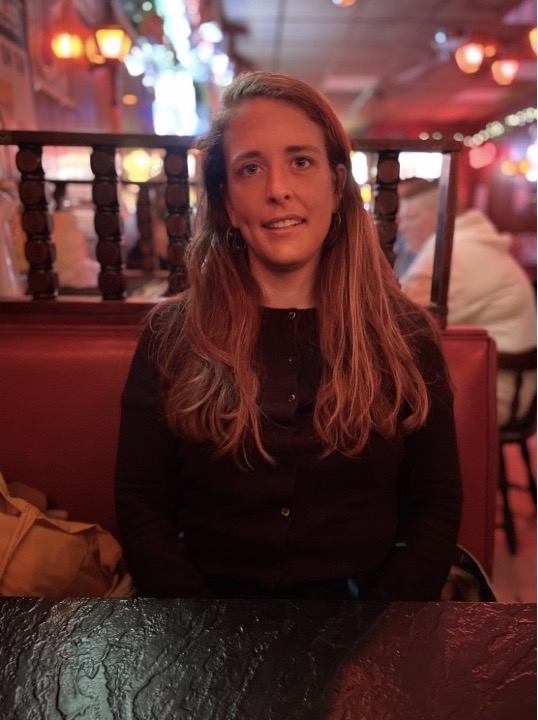
Meet our Event Hosts
Cristina Lombardi-Diop
CRISTINA LOMBARDI-DIOP is Assistant Professor of Italian Studies and head of the Italian Program in the Modern Languages and Literatures Department of Loyola University Chicago, where she teaches courses on African literature, Italian cultural history, and gender and migration. She is editor, with Caterina Romeo, of Postcolonial Italy (2012) (published in Italian as L’Italia postcoloniale) and author, with Gaia Giuliani, of Bianco e nero. Storia dell’identità razziale degli italiani (2013). Founder and director of the publishing series Transiti, for Le Monnier Mondadori, Cristina has published widely on such topics as white colonial femininity; the Black Atlantic and the Mediterranean; African cultural spaces and African diasporic literature in Italy. Most recently, she has edited two journal special issues, one on Postcolonial Europe (2016) and the other on Afrofuturismo: Spazi, corpi, estetiche, pensiero dell’afrotopia. She is currently working on theories of race from fascism to postcolonial contemporaneity and the presence of Black diasporic culture in Italy.
CRISTINA LOMBARDI-DIOP è docente universitario e direttore del programma di italianistica presso il dipartimento di Modern Languages and Literatures della Loyola University di Chicago. È curatrice, con Caterina Romeo, di Postcolonial Italy (2012) (pubblicata in italiano come L'Italia postcoloniale) e autrice, con Gaia Giuliani, di Bianco e nero. Storia dell'identità razziale degli italiani (2013). Fondatrice e direttrice della collana editoriale Transiti, per Le Monnier Mondadori, Lombardi-Diop ha pubblicato ampiamente su temi come la femminilità coloniale bianca; le diaspore nere atlantiche e mediterranee e gli spazi culturali africani e la letteratura diasporica africana in Italia. Più recentemente, ha curato due numeri speciali, uno su Postcolonial Europe (2016) e l'altro su Afrofuturismo: Spazi, corpi, estetiche, pensiero dell’afrotopia (2019)
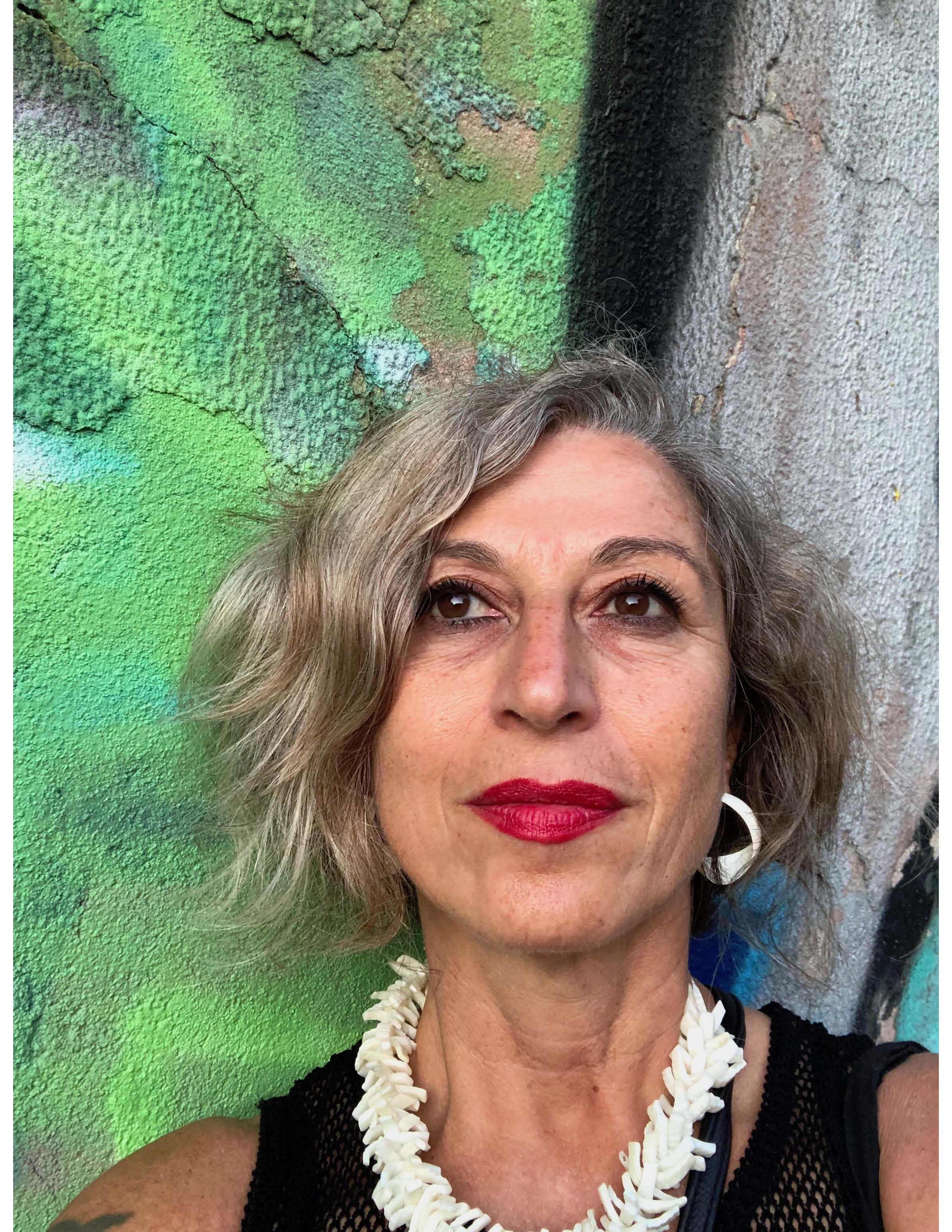
Eliana Văgălău
Eliana Văgălău is Assistant Professor of Francophone literature at Loyola University Chicago. Her research focuses on Caribbean literature, the relationship between aesthetics and politics, and issues of race and diaspora. She has published and lectured on the work of writers and philosophers such as Dany Laferrière, Maryse Condé, James Noël, and Edouard Glissant. She co-edited, with Martin Munro, the volume Jean-Claude Charles: A Reader's Guide, published by Liverpool University Press in 2022. She is a co-founder of the Collectif Jean-Claude Charles, which aims to promote and make visible the writing of this fundamental Haitian author through publications, conferences, and performances. Since 2020, she is the vice-editor of the literary and artistic journal intranQu'îllités.
Eliana Văgălău est professeure adjointe de littérature francophone à l'Université Loyola Chicago. Ses recherches portent sur la littérature des Caraïbes, la relation entre l'esthétique et la politique, ainsi que les questions de race et de diaspora. Elle a publié des articles et présenté des conférences sur l’œuvre d'écrivains et de philosophes tels que Dany Laferrière, Maryse Condé, James Noël et Edouard Glissant. Elle a coédité, avec Martin Munro, le volume Jean-Claude Charles : A Reader’s Guide, paru chez Liverpool University Press en 2022. Elle est co-fondatrice du Collectif Jean-Claude Charles, qui vise à promouvoir et rendre visible l’écriture de cet auteur haïtien fondamental à travers des publications, des conférences et des performances. Depuis 2020, elle est vice-éditrice de la revue littéraire et artistique intranQu’îllités.
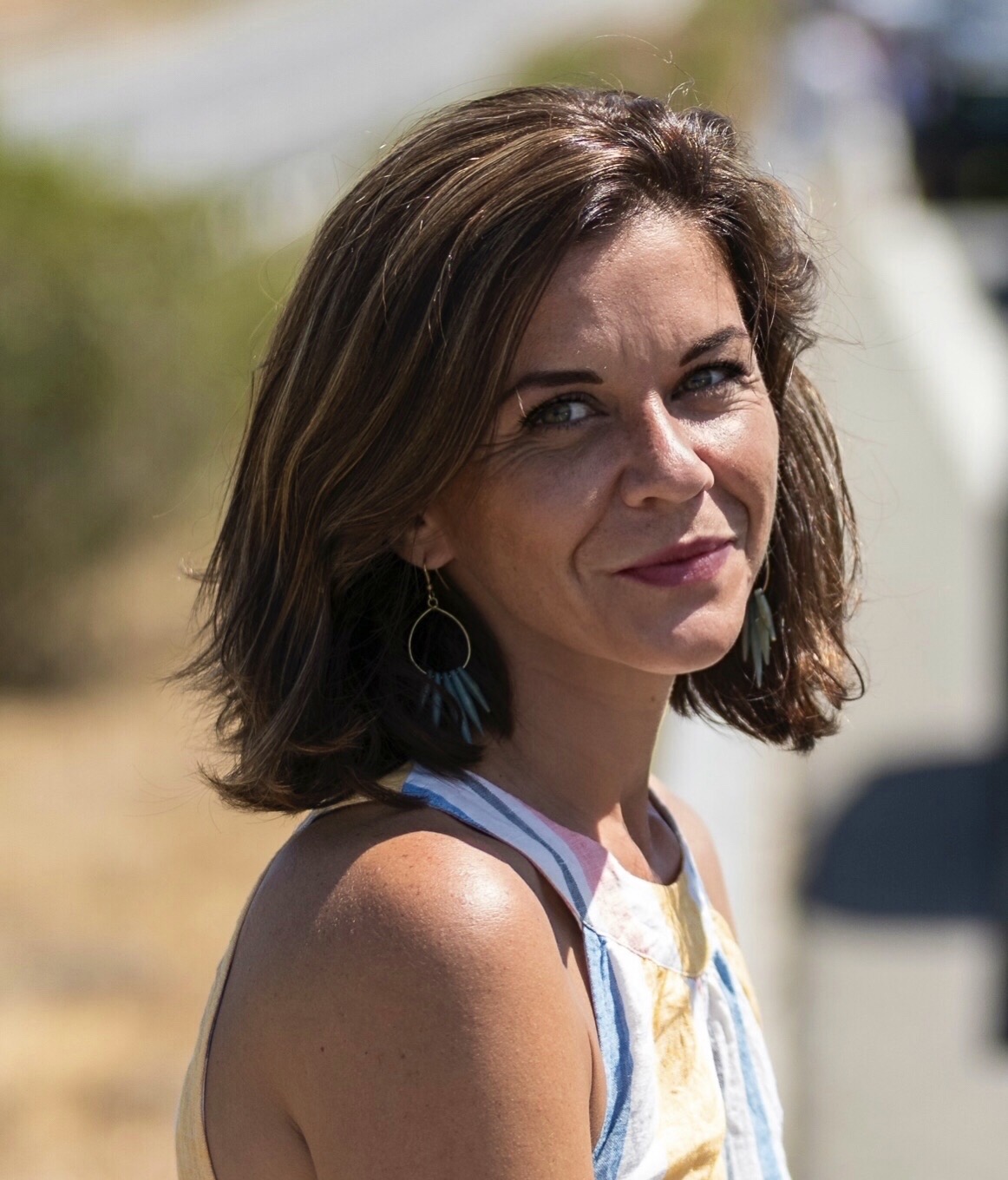
The Black Europe Symposium at Loyola University Chicago brings to visibility for students, faculty, and the Chicago community the diverse presence of writers and artists of African descent who contribute to today’s European cultural life through different media, including music, film, literature, the visual arts, performance, and poetic expressions. It highlights the complex processes that forge a new Europe through cross-cultural encounters and identity formation, while emphasizing the importance of the arts and foreign languages and cultures in a world that is changing through travel and migration.
The invited guests come from different national and cultural backgrounds and their main languages of expression are French and Italian. Yet, their cultural identity is fluid, moving in and out of many languages, social contexts, affiliations, and memories. Alongside the artists, the symposium gathers a group of scholars to foster a sustained reflection on the shifting valences of "African", "European" and "Blackness" in the context of today’s Europe and the United States.
This symposium is part of a 2022-2023 series of initiatives at Loyola University Chicago that celebrate and discuss Blackness in its global instantiations. The conversation with writer Louis-Philippe Dalembert launched Black Europe on October 26th, 2022.
Learn more about the Black Europe and the Mediterranean Wall webinar, the first component of this series, here.

